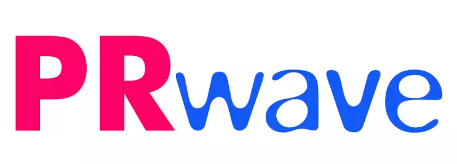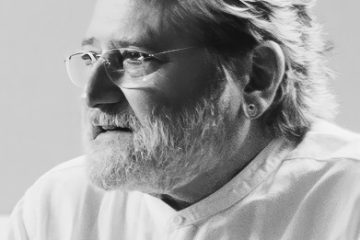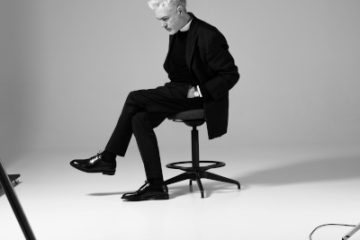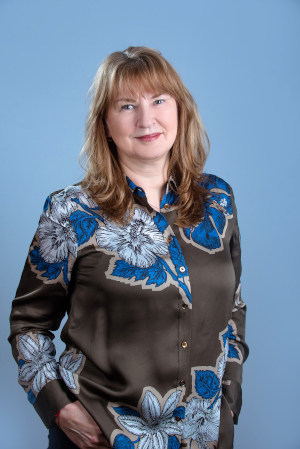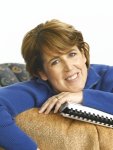 I’d like to approach this conversation from a different angle: the one of image, PR. So, let’s start.
I’d like to approach this conversation from a different angle: the one of image, PR. So, let’s start.
1 Do you consider yourself a successful writer?
To me, any writer who can get a book published is a successful one, because it’s so hard to do. If she can write full-time, she’s very successful. So by that standard, yes, I’d consider myself a success.
2 How do you get here – to be a successful writer?
By working very hard for a very long time. Like most published authors it took me many years to get a book published, and the first one I published was not the first I wrote. But I wanted it badly enough that I kept going despite the rejections.
3 When you wrote your first novel – Bitten – did you imagine that it will be the first in a series of 10 successful novels?
No. At the time, I was just so happy to have a publisher buy it that I wasn’t thinking of the future. Even when I did, I didn’t expect Bitten would launch a series because it was written to be a stand-alone novel. I thought my next would be a different supernatural thriller with different characters, but my publishers liked the world I’d created and asked for more.
O recenzie a "Luna plina" puteti citi aici.
4 How were you promoted as a writer? How much is your work, how much the publisher’s? (I saw you have a site, a Twitter account for Elena etc.)
The majority of it is my work at my initiative. Every now and then one of my publishers will say “we think you should be on Twitter etc” but it’s up to me to do it and maintain it. The idea for a character Twitter was one of theirs. My Canadian publisher suggested having a character tweet for another book earlier this year, but I couldn’t imagine that character doing it. I thought it was an interesting concept, though, so I held onto the idea and tried it for Elena instead.
5 What was the most efficient way/action/technique of PR/promotion for you?
The most efficient is Twitter, because I can reach a large audience for no cost and relatively little effort. The most important, though, is a website. That’s what readers look for when they want information. Creating and maintaining it, though, is both time consuming and expensive!
6 How do you see woman today? What’s your image of them (locally and worldwide)?
My viewpoint tends to be strongly North American, unfortunately. I don’t travel nearly as much as I’d like, so outside North America, I need to rely on news. Here, though, I think women are doing very well. We’ve achieved a lot in a relatively short period of time. There are still things we need to work on, but we’ve made great strides and we continue to do so.
7 Is Elena representative for women? Is each women special but some of them don’t know how to point that out?
Elena doesn’t represent all women, but when taken with the rest of my main female characters they do represent the idea that all women have a strength—they just need to find it, accept it and learn to use it.
8 Which is the most successful book from the “Women of the Otherworld” series? Why do you think that book is the most successful?
The most successful in term of sales is the first one, Bitten. That’s true for any series, because new readers try to pick up the first one. If they don’t like it, they stop there, so there are always more sales for the first!
9 How do you see woman in the future?
I see them continuing along the way they’ve come, searching for their place—one that’s “equal yet different”—and, hopefully, finding it.
10 What’s the image of a writer these days?
There are always stereotypes of writers—the successful author living on the beach, working only a few hours a day or the struggling author living in a rundown apartment and scribbling her novel in cafes. In reality, whether struggling or successful, an author is usually like everyone else, living a “normal” life and working as at any other job (only being fortunate enough to have a job she loves!)
11 How do you see the future of books? (Will they be printed? On-line only? Etc.)
E-books are continuing to grow in popularity, and I’m sure they will keep growing until they take up a much bigger portion of the market. Printed books won’t go away anytime soon, though. Too many people still want a book in their hands when they read.
12 From your experience can you extract an advice for all woman?
I hate to try giving advice to any group that large. If I did, I’d just say to follow your dreams. If you really want something, keep at it and don’t get discouraged. Success will come, but it may take years of work to achieve it.
Thank you very much.
Kelley Armstrong s-a nascut in 1968, intr-o familie tipica de clasa mijlocie. A absolvit Facultatea de psihologie la University of Western Ontario. In prezent este dedicata in intregime scrisului, este casatorita, are trei copii si locuieste in Ontario, Canada. Seria Women of the Otherworld are zece volume, primul fiind cel de fata, iar ultimul fiind anuntat pentru lansare in toamna lui 2009. Cel de al saptelea roman al seriei a fost declarat bestseller New York Times in mai 2007. Seria Women of the Otherworld se incadreaza in genul fantasy-ului contemporan, cu personaje suprarealiste ca vrajitoare, samani, fantome, varcolaci, demoni, vampiri si puternice elemente romantice. {mosloadposition user10}
